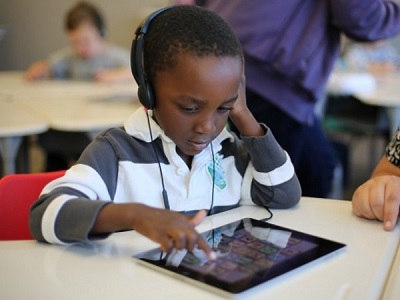Feasibility of the Ghana ‘TV learning’ initiative and the way forward

The novel coronavirus has exposed the inequalities in numerous aspects of what makes society whole, and among the numerous affected sectors education has not been spared.
In a bid to minimise the spread of the virus, the Government of Ghana imposed a ban on all social gatherings, leading to the closure of educational institutions. But learning, as the cliché goes, “never stops”.
In an effort to help students keep up with the syllabi and remain active while social distancing and other health protocols were being practised, stakeholders in education came up with some innovative measures.
The Ministry of Education, Ghana Education Service and the Ghana Broadcasting Corporation partnered with the MultiChoice Ghana Ltd to make GES approved educational content available for Ghanaian students, mainly those in Basic, Junior High and Senior High Schools.
The collaboration and subsequent roll out of the programme became effective on April 14, 2020.
Although the Minister of Education along with the other agencies involved in taking that decision had students at heart, it appears the disadvantages of the e-learning arrangements outweigh the advantages.
Inasmuch as Ghana is catching up with Western countries in terms of technology, it still remains a country with a large number of people living in poverty.
A good number of the populace, especially in rural areas, still do not have the luxury of a television set and uninterrupted power supply. Digital television channels are not available in some areas due to poor connection.
Though the e-learning measure was meant to fill some gaps, this mode of learning, to some extent, prevents students from having a personal interaction with their teachers.
Students lose the benefits of asking questions, seeking clarification when confused and getting immediate feedback.
Weaker students who do not perform so well in class could suffer the most as they do not receive the extra attention they deserve after classroom lessons.
There is also the problem of laziness as most students tend to feel relaxed in the comfort of their homes and are most likely to choose sleeping, watching a movie or playing games rather than paying attention to a lesson instructor on television.
Some students at basic and tertiary levels indicate they do not have enough data to keep up and access online tutorials. Others also lose the motivation to learn when separated from peers.
Though efforts are being made for schools to re-open in the shortest possible time, there is still the fear that the entire syllabus could be completed with majority of students having very little understanding of various topics in their respective programmes of study.
While the Ghana e-learning TV initiative could prove to be beneficial to students at home, the challenges associated with its practicality cannot be understated.
From all indications, we still have a long way to go in mitigating gaps birthed by the e-learning system in our part of the world.
As far as improving e-learning in the near future is concerned, stakeholders must as well increase the tools and equipment which could help achieve the objective of this learning system.
When the pandemic is over, there would be an urgent need to review our educational system to help strengthen the areas where there are some shortfalls.
While students are encouraged not to give up on the e-learning system, collaboration and a deliberate effort by the state will be required so that the desired outcome of the e-learning initiative is completely attained.
Priscilla Boakye,
Student, Ghana Institute of Journalism















